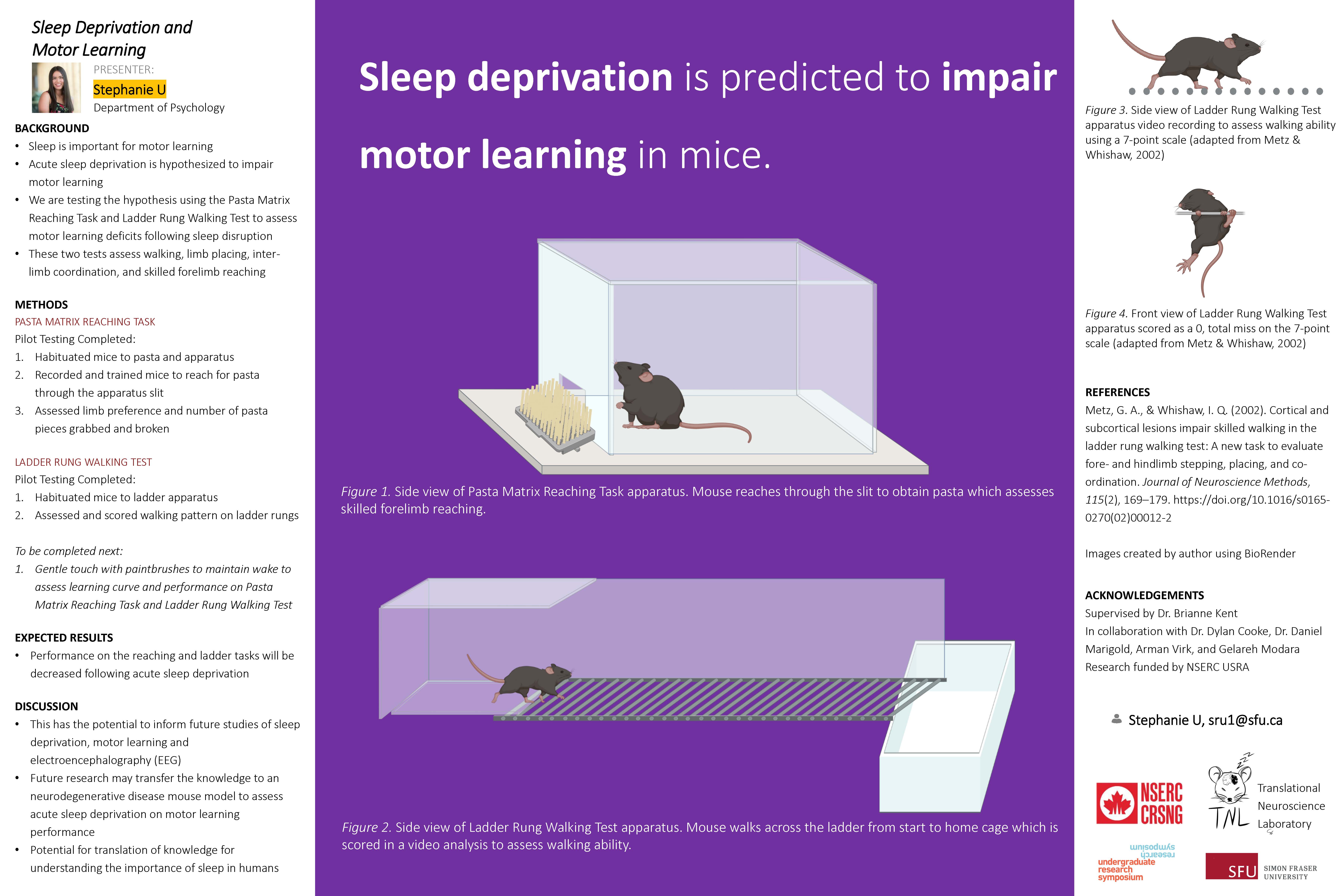Sleep Deprivation and Motor Learning
Main Article Content
Abstract
It is well-established that sleep is important for learning and memory. The goal of our project is to assess how the impact of acute sleep deprivation in mice affects learning two motor learning tasks: the reaching task and ladder rung walking test. For the reaching task, a mouse is placed in an apparatus and must learn to reach through a narrow opening for a food reward. For the ladder rung walking test, a mouse is placed in a narrow corridor and must learn to walk across a ladder to their home cage. This task assesses walking, limb placement, and inter-limb coordination. Our hypothesis is that mice that are allowed to sleep following a learning session will perform better the following day, compared to mice who are sleep deprived following a learning session. To prevent the mice in the sleep deprivation group from sleeping, they will be gently poked with paintbrushes if behavioural signs of sleep are observed. To our knowledge, no previous research has assessed how learning these tasks is affected by sleep deprivation. We intend to inform future studies of sleep deprivation and motor learning that will use EEG to study what is happening in the brain during sleep that is important for learning.
Faculty Supervisor: Dr. Brianne Kent, Department of Psychology, Simon Fraser University
Article Details

This work is licensed under a Creative Commons Attribution-NonCommercial-NoDerivatives 4.0 International License.

